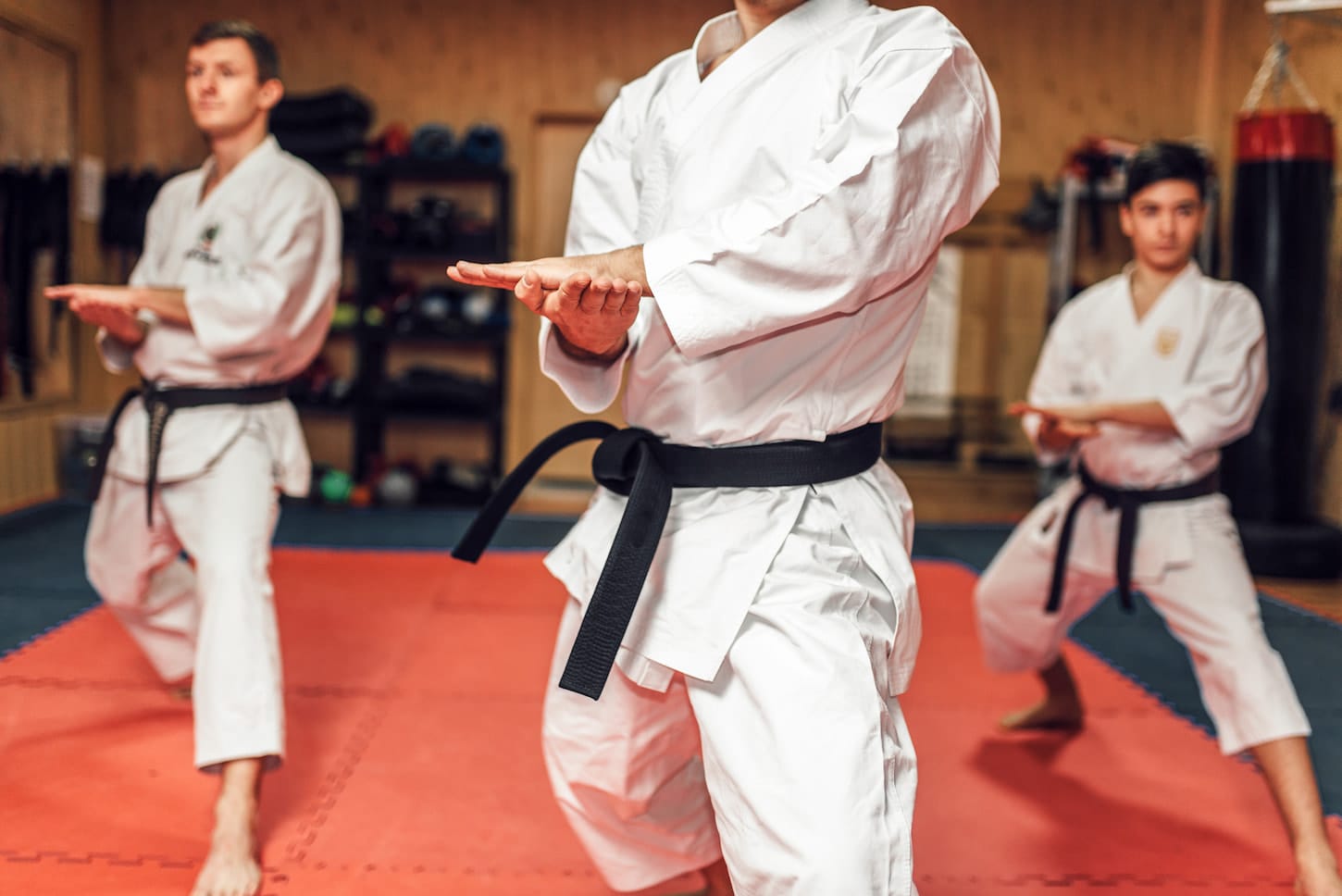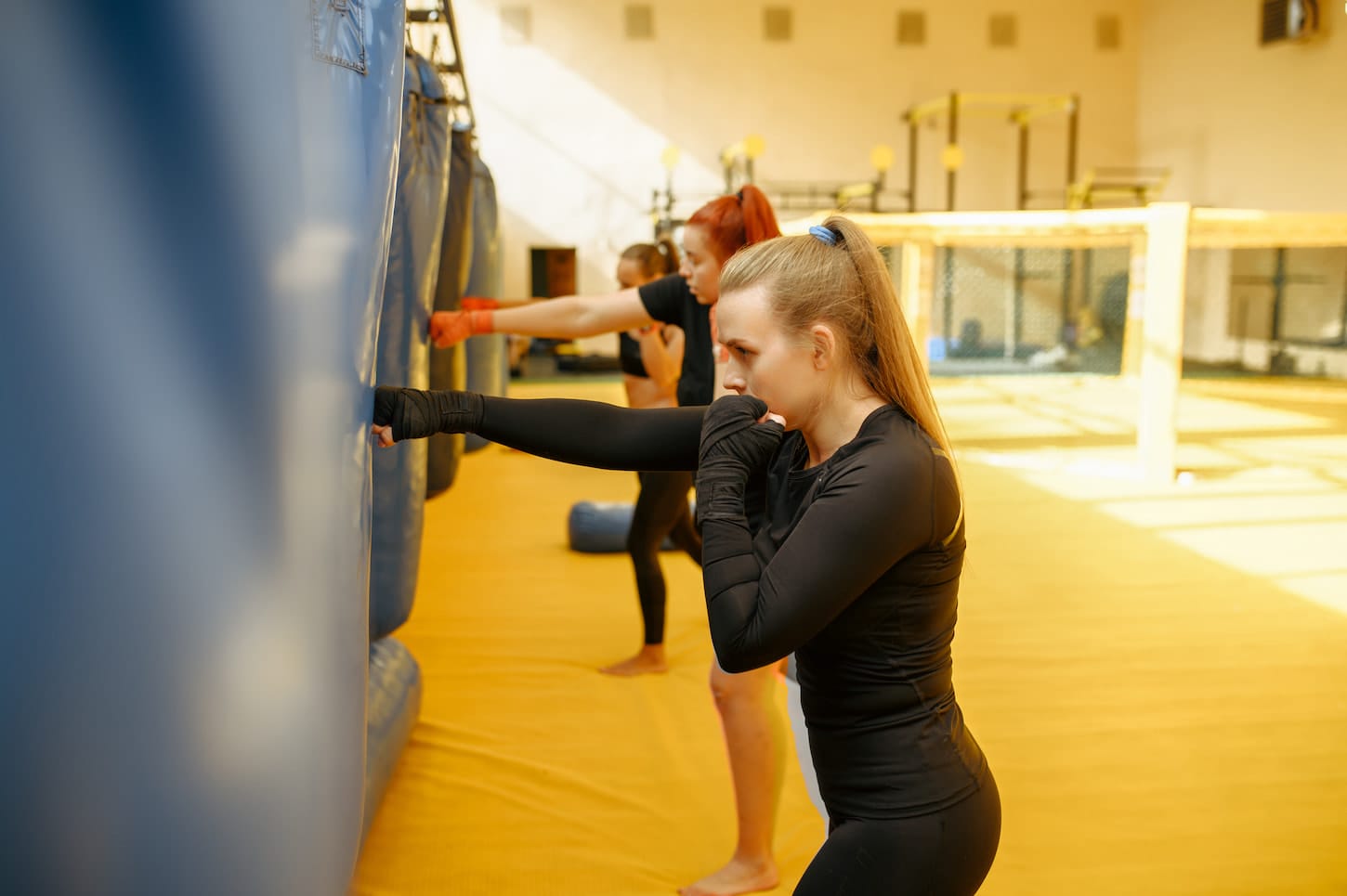You are probably thinking about enrolling yourself or your child in martial arts and have a couple of questions! Let us dive a little deeper into the benefits of martial arts and what it does to your confidence. Because does martial arts help with confidence? Spoiler: it does!
Practicing martial arts boosts and develop confidence, as it involves learning new skills and achieving goals, mindfulness, and self-awareness. Martial arts also help with confidence as it gives participants a better sense of self-control, physical skills, and a sense of self-improvement.
Most likely you wonder which martial art style to choose for building self-confidence. Although you are the one who will decide, we have prepared answers for you right here, so keep on reading if karate, taekwondo, judo, or MMA is for you!

Why Is Confidence Important in Martial Arts?
Training in any martial art focuses on self-improvement. What we think is what we are. Having self-doubt will show in your martial art practice, as well as in your life outside of it. Learning martial arts will improve that sense of confidence.
Persistence and discipline in training will result in boosting confidence. While learning a new skill, you improve your mental and physical health. The longer you practice martial arts, the less you are comparing yourself with others, and you are more focused on your own improvement.
Another important thing why confidence is important is dealing with failure. Be prepared to fail many times in your training. Actually, failures are expected in martial arts and welcomed. It is a valuable teacher not to give up but to try again until you overcome the challenge.
Learning that failure is part of the learning process alone is a huge win from practicing martial arts!
Do Specific Martial Arts Build Self-Confidence?
All styles of martial arts build self-confidence and develop character, strength, discipline, and confidence. It doesn’t matter which martial art style you choose, as all martial arts develop character, strength, discipline, and confidence. Choose the style that appeals to you.
To help you choose the best martial art style for you, continue reading!
How does karate build self-confidence?
Karate is a great martial art skill for building self-confidence through skill and progression. Karate motivates you to step out of your comfort zone and challenge yourself. Karate is appropriate for any fitness level and age.
Training entails progress from level one to the next. Each level corresponds to a specific belt color.
This kind of approach greatly helps to push your limits and to give your best. It enhances the ability to trust in yourself and your capabilities. That is why training in karate is an enjoyable and natural way to increase self-confidence.
Want to know the answer to a commonly asked question: Are Martial Arts and Karate the Same Thing? Get the answer in our article here!
Does taekwondo help with confidence?
Taekwondo, similar to karate, teaches participants to be respectful and honor their word. Training helps you to become the person others can trust, and that builds self-confidence.
Similar to karate, taekwondo gives attention to individual progress, instead of a group. This helps you to rely on your own skills and decision-making which gives confidence and encouragement to succeed in life.
By now you are questioning the difference between taekwondo and karate. Both are very popular and similar. Simply explained, karate focuses more on hand strikes while taekwondo focuses more on leg kicks.
I know it’s an oversimplified way to describe the difference between them, but I don’t want to get too far off-topic in this article!
Does judo help with confidence?
Practice in judo builds confidence, coordination, strength, and balance. As you become more skillful in judo, confidence increases tremendously. It teaches that you are much more competent than you thought.
In judo, prepare to be literally thrown away on the ground and others will probably be better than you. That way, you will learn from your mistakes, get back on your feet and try again.
Unlike karate and taekwondo, judo is a more gentle and defensive style of martial art that doesn’t include punching and kicking.
Again, that’s an oversimplified way to distinguish the two so we don’t get off-topic. The differences are enough to have a whole other article, which we can cover another time.
Does MMA give you confidence?
Training MMA is hard and humbling while encouraging self-confidence. Afterward, you realize that other things aren’t so bad in your life. Only one MMA training session can be enough to put things into perspective.
It definitely gives you confidence. This martial art style puts to the test your mind and body, it is very powerful. This kind of training requires endurance and discipline. You overcome your inner obstacles and you are prepared to confront any problem with confidence and clarity.
Pushing your body to the limits gives you mental toughness. Unlike other martial arts, MMA is a full-contact fighting sport so you need to have confidence and skills. It is all about the mindset.
Does Learning to Fight Make You More Confident?
Contrary to the popular belief, training in a combat sport will not make you aggressive and violent. The opposite is the truth, it will make you more confident, humble, and compassionate while improving your self-confidence. It allows you to channel your negative emotions in a controlled and secure environment.
So does learning to fight to make you more confident? Well, the short answer is, yes it does! Of course, when referring to fighting, we speak of it as a part of a combat sport or martial art style in a safe environment.
Note: Don’t go find a war zone to learn how to fight. That’s a sure way to develop all sorts of other problems, like PTSD or death.
Confidence is a state of mind that you develop and improve with time and training. It prepares you for the life in general.
Fighting is more than just fighting. As a matter of fact, it requires you to frequently work on strengthening your confidence, your core, and your physicality. Learning to fight can help you become your best self.
You will get a chance to know yourself better, and it will change the way you think. Your approach to fighting will be more strategic and thoughtful, and this will carry over into your real-life situations.
Let us not forget, to learn the skill of self-defense. But these skills go beyond the ability to protect yourself. It represents a powerful source of confidence, especially for children. They become more aware of their surroundings which gives them the needed confidence to stand up for themselves.

Key Takeaways and Next Steps
Regardless of which martial arts you choose, they are mentally and physically challenging. From experience, we know that everyone can benefit from training in martial arts. Perhaps, training MMA isn’t your cup of tea but be sure to try other martial art styles.
We love how martial arts improve the quality of life and instill confidence in both adults and children. Growing up as a child can be daunting sometimes but with a healthy amount of self-confidence comes self-belief and compassion.
Ready to keep improving as a family who enjoys (or wants to enjoy) sports? Make sure you read this article next: Can You Learn Martial Arts at Home? (4 Simple Ways). That way, you don’t have to break the bank to join a dojo!
Resources
Learning from your own experiences is important, but learning from others is also smart. These are the sources used in this article and our research to be more informed as a family of sports nuts wannabes.
- Elbow, Bloody. “Fight Science: Building a Fighter’s Confidence.” Bloody Elbow, 8 Dec. 2016, www.bloodyelbow.com/2016/12/8/13850018/fight-science-building-a-fighters-confidence-mma-analysis.
- Fuller, Carol, and Viki Lloyd. “Martial Arts and Well-Being.” OAPEN: Online Library and Publication Platform, Routledge Taylor and Francis Group, 2020, library.oapen.org/bitstream/handle/20.500.12657/23633/9781138213555_text.pdf?sequence=1.
- Strayhorn, J.M., Strayhorn, J.C. Martial arts as a mental health intervention for children? Evidence from the ECLS-K. Child Adolesc Psychiatry Ment Health 3, 32 (2009). https://doi.org/10.1186/1753-2000-3-32
